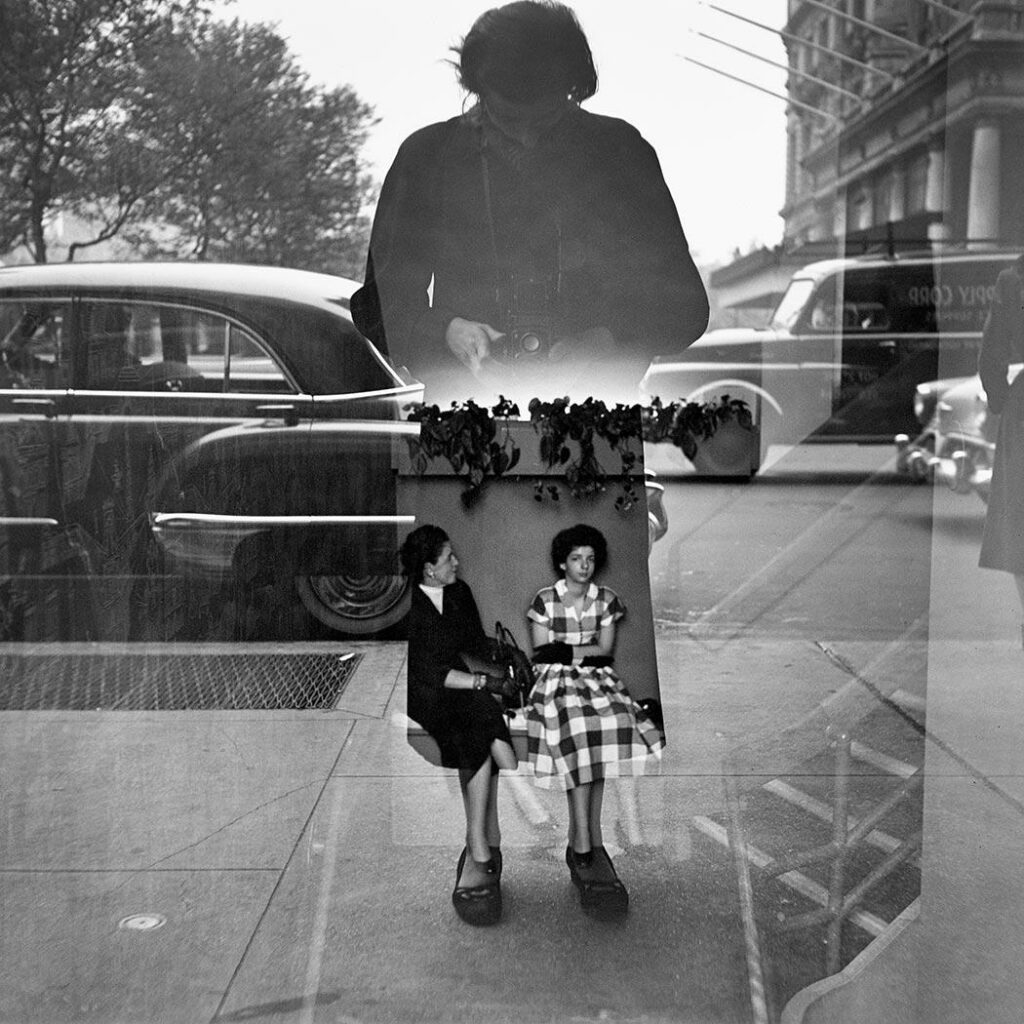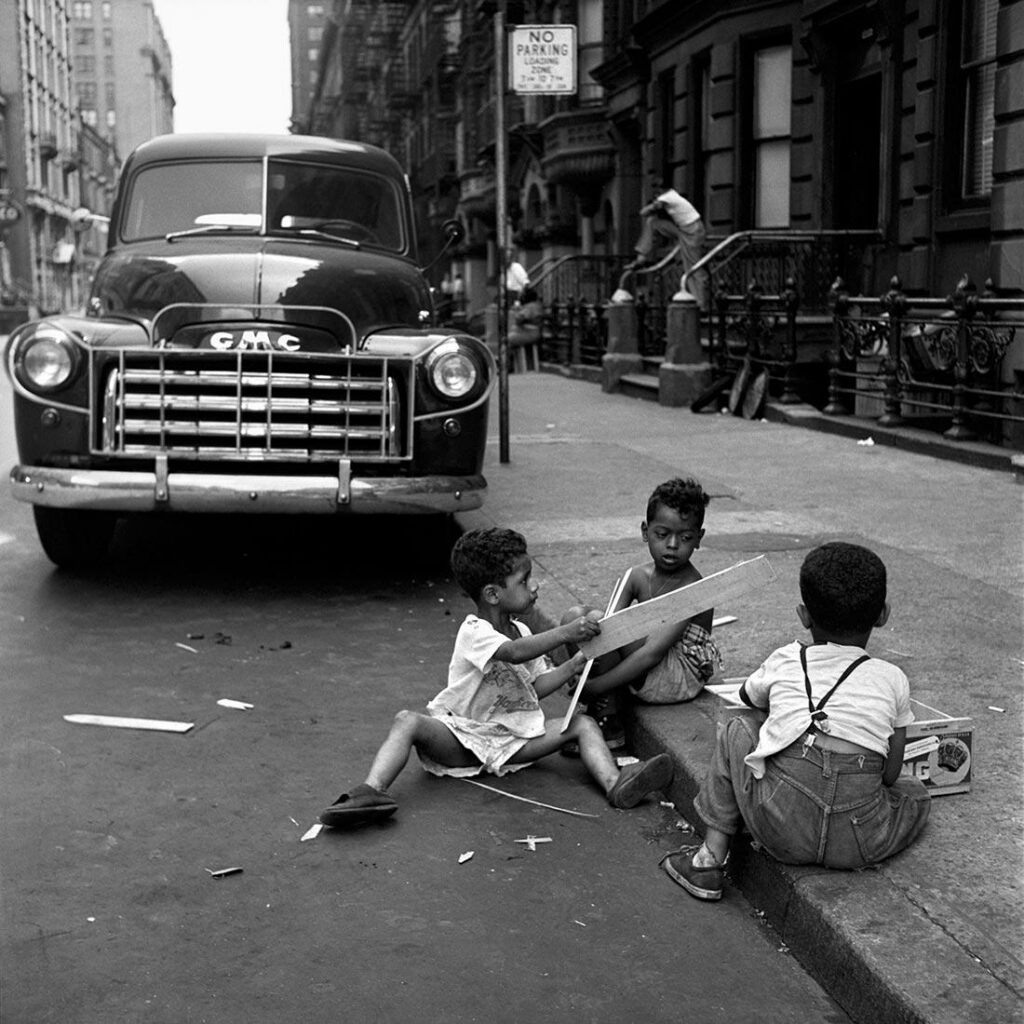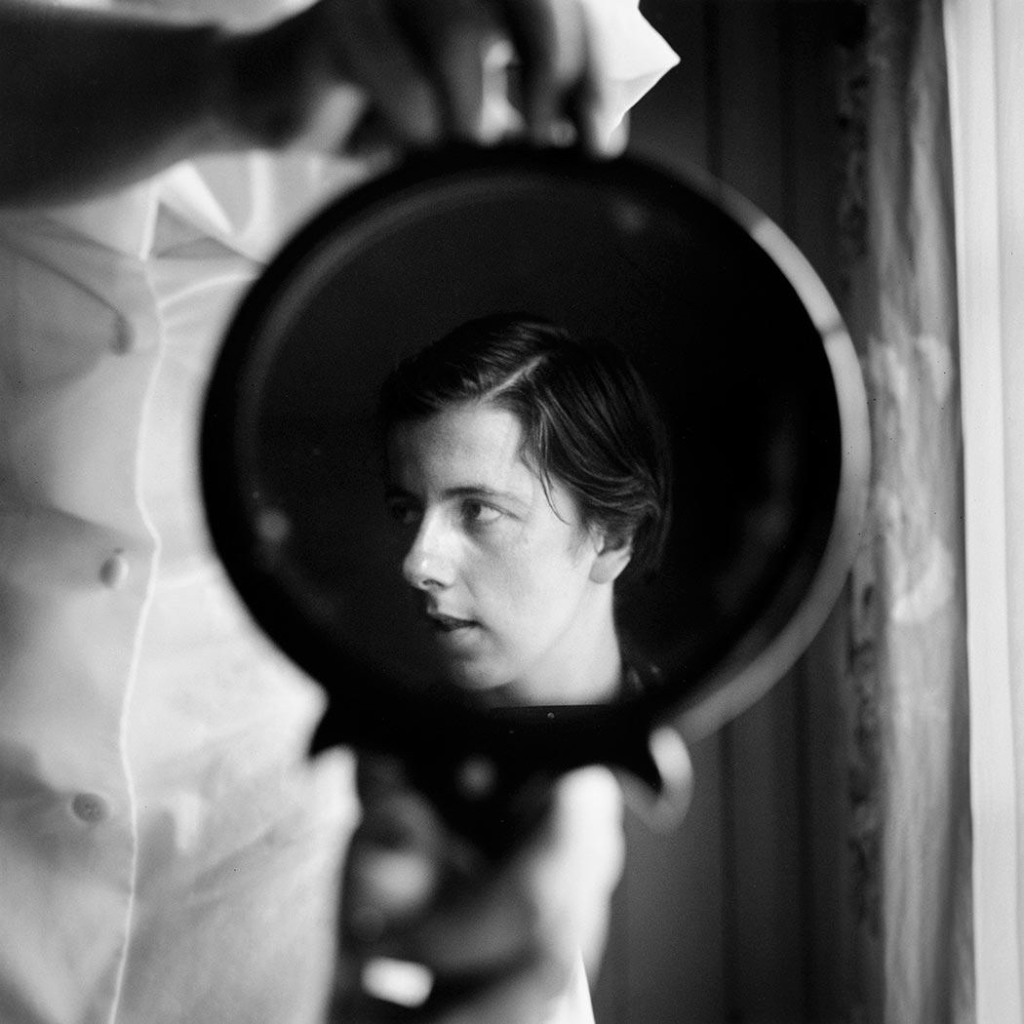
📷 Self-Portrait, 1954 – © Vivian Maier/Maloof Collection
For decades, a woman roamed the streets of Chicago and New York, camera in hand, capturing the essence of urban life. Her name was Vivian Maier. Working as a nanny, she amassed over 150,000 photographs, most of which remained unseen during her lifetime. It wasn’t until after her death in 2009 that her remarkable body of work came to light, revealing a keen eye for the nuances of everyday life.
A Life in the Shadows
Born in New York City in 1926 to a French mother and Austrian father, Maier spent parts of her childhood in France before returning to the U.S. She worked as a nanny for over four decades, primarily in Chicago. During her off-hours, she wandered the city streets, capturing candid moments with her Rolleiflex camera. Her subjects ranged from children and the elderly to the architecture and bustling life of mid-20th-century America.
Despite her prolific output, Maier was intensely private, rarely sharing her photographs. It wasn’t until 2007 that her work was discovered by John Maloof, who purchased a box of her negatives at a Chicago auction. Recognizing their significance, he began to develop and share her images, leading to widespread acclaim.
The Poetics of the Everyday
Maier’s photographs are a testament to her ability to find beauty in the mundane. She had an uncanny knack for capturing fleeting moments that spoke volumes about the human condition.

📷 Children at Play – © Vivian Maier/Maloof Collection
Her images often feature:
– Reflections and Shadows: Maier frequently used mirrors and shadows to create layered compositions, sometimes inserting herself subtly into the frame.
– Urban Vignettes: Scenes of daily life, from bustling markets to quiet alleyways, showcasing the diversity and vibrancy of city life.
– Portraits of Strangers: Unposed, candid shots that capture the raw emotions and stories of her subjects.
Self-Portraiture and Identity
Maier’s self-portraits are particularly intriguing. Rather than traditional posed images, she often photographed her reflection in shop windows, mirrors, or other reflective surfaces, creating a sense of distance and introspection.

📷 Self-Portrait – © Vivian Maier/Maloof Collection
These images raise questions about identity and self-perception, offering a glimpse into the enigmatic persona behind the camera.
Ethical Considerations
The posthumous discovery and commercialization of Maier’s work have sparked debates about privacy and consent. She never sought fame, and it’s unclear whether she would have approved of her photographs being exhibited and sold. This raises important questions about the rights of artists and the responsibilities of those who curate and profit from their work.
Legacy and Influence
Despite these ethical dilemmas, Maier’s work has had a profound impact on the world of photography. Her images offer a unique perspective on mid-20th-century urban life and have inspired countless photographers to explore the streets with fresh eyes.
Her story also highlights the contributions of women in photography, a field where female artists have often been underrepresented. Maier’s posthumous recognition serves as a reminder of the many untold stories and unseen works that may still lie hidden.
Explore More of Vivian Maier’s Work
Note: All images are © Vivian Maier/Maloof Collection.